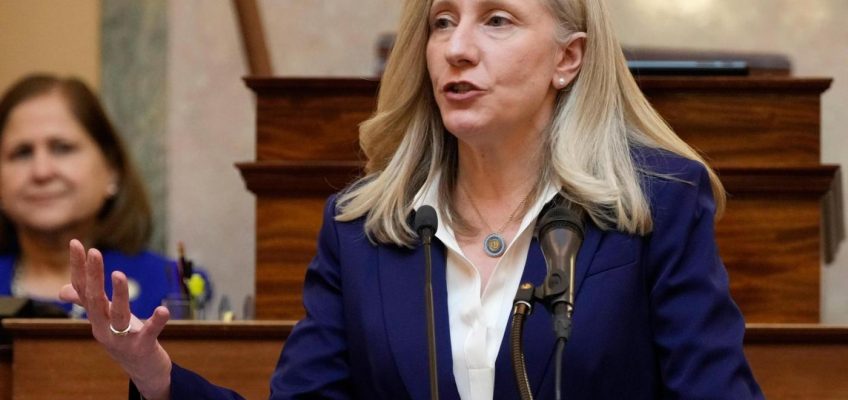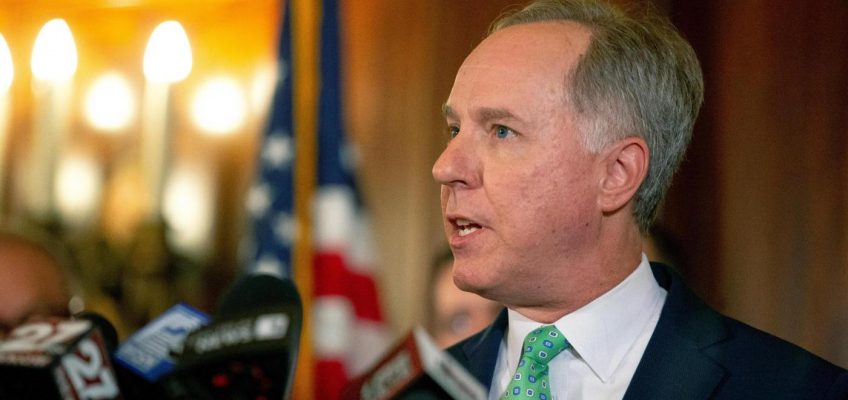By JOEY CAPPELLETTI and OLIVIA DIAZ, Associated Press
WASHINGTON (AP) — Virginia Gov. Abigail Spanberger will deliver the Democratic response to President Donald Trump’s State of the Union address next week, just months after resoundingly winning an office previously held by a Republican.
The Democratic rebuttal will immediately follow Trump’s address to Congress next Tuesday, offering the party’s most high-profile opportunity to deliver a countermessage.
Spanberger, who served three terms in Congress, became Virginia’s first female governor earlier this year. She won the race by a double-digit margin, campaigning on affordability and lowering costs for families.
“Gov. Spanberger will lay out a clear path forward: lower everyday costs, protect healthcare, and defend the freedoms that define who we are as a nation,” Senate Democratic Leader Chuck Schumer said in a statement.
Related Articles
HUD proposes rule that would force noncitizens from public housing
US pays about $160 million of the nearly $4 billion it owes the United Nations
FCC chairman says the agency is investigating ABC’s ‘The View’ over equal time rule
Federal judge accuses Trump administration of ‘terror’ against immigrants in scathing ruling
Slavery exhibit removed by Trump administration is returning to Independence Mall in Philadelphia
House Democratic Leader Hakeem Jeffries said in announcing Spanberger as the party’s pick that she “embodies the best of America as a mother, community leader and dedicated public servant.”
On the campaign trail last year, Spanberger also spoke out against the White House’s gutting of the civil service, an issue that hit particularly hard in Virginia, home to a large number of federal workers.
“Those who have devoted their lives to public service, you are worried about an administration that is gilding buildings while schools crumble, breaking the social safety net and sowing fear across our communities,” Spanberger said at her inauguration. “Betraying the values of who we are as Americans.”
Last year’s record-breaking government shutdown also hit the state’s sizable federal workforce, leaving many employees without pay for weeks.
The federal government is once again partially shut down as Democratic leaders in Congress and the White House remain at an impasse over funding for the Department of Homeland Security. The shutdown, which began Saturday, is likely to stretch into Trump’s address Tuesday, with no agreement in sight.
As a former CIA case officer, Spanberger has tied her political career to her public service and national security credentials. She also has pitched herself as a mother of daughters educated in Virginia’s public schools and a Capitol Hill veteran who often worked across the aisle.
In the months since winning the election, she has vowed to work with the president when they are aligned, but also has taken more pointed digs at the White House.
Diaz reported from Richmond, Virginia




